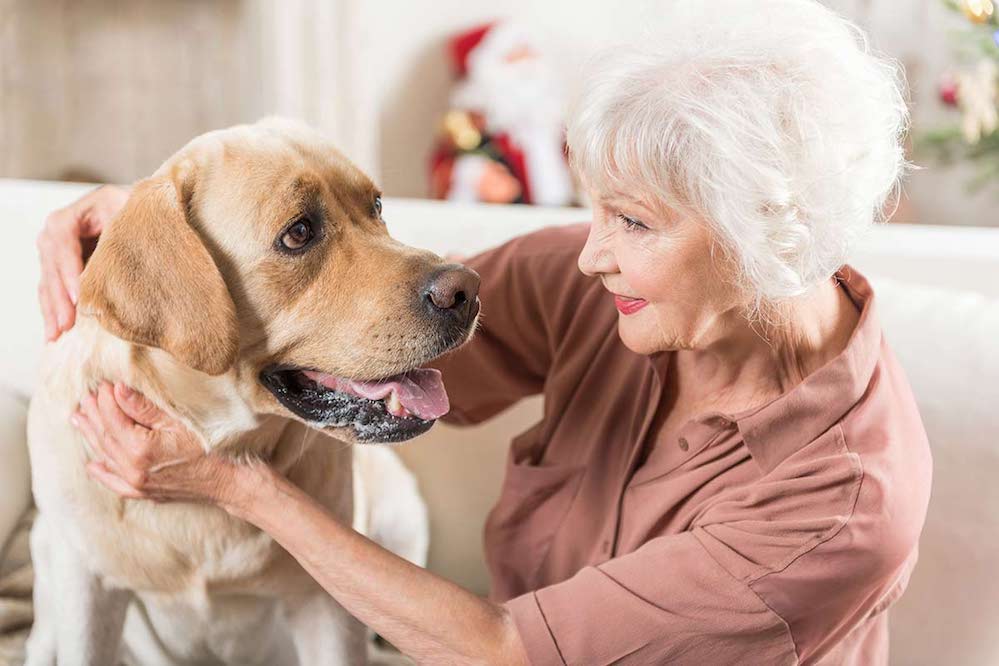
Search and rescue dogs seem like the ultimate example of determination, working tirelessly to track their target through the roughest of conditions. But what about our pet dogs? Will they stick with a problem for as long as their working counterparts? Unlike our pet dogs that often look to us for guidance, search and rescue dogs are trained to work independently. Does the presence of a human affect their ability to solve problems in the same way it might affect our pets? Recent research on problem solving in dogs provided some surprising answers to these questions.
Lauren Brubaker and Monique A.R. Udell of Oregon State University wanted to examine how humans influence independent problem-solving behavior in dogs. Their study, published in Applied Animal Behaviour Science, compared 28 search and rescue dogs to 31 pet dogs. Both groups contained dogs from a variety of breeds. The goal was to see how the presence of a person would affect the dog’s persistence and performance on a puzzle task.
Each dog was given a solvable puzzle box containing a sausage, then allowed two minutes to open the box and eat the food. The box was given to the dogs under three conditions: an alone condition, a neutral condition, and an encouragement condition. In all three conditions, the dogs saw their owners place the sausage in the box. In the alone condition, the owner left the room and the dog was free to work on the puzzle box by himself. In the neutral condition, the dog’s owner was in the room, but he or she was instructed not to communicate with the dog. In the third condition, the owner was in the room and instructed to encourage the dog with praise or gestures (although owners were not allowed to touch the dog or the box).
In the alone condition, two pet dogs opened the box. In the neutral condition, three pet dogs and two search and rescue dogs opened the box. However, in the encouragement condition, nine of the search and rescue dogs opened the box and only two pet dogs did. This means that significantly more search and rescue dogs than pet dogs solved the problem when their owners encouraged them. Furthermore, two of the three pet dogs that opened the box with their owners present in the neutral condition were also able to solve the box when they were alone. Despite these differences in successfully completing the task, there was no difference between the pet dogs and the search and rescue dogs in persistence under all three conditions.

The researchers chose search and rescue dogs because of their training to work independently from their handler. Therefore, the scientists expected the search and rescue dogs to outperform the pet dogs on the task overall. However, that wasn’t the case. The search and rescue dogs only outperformed with encouragement from their owners.
Why were the search and rescue dogs more successful than pet dogs when they were encouraged, but unable to solve the problem when they were alone? The researchers suggest it may be due to the relationship between the owners and their dogs. Perhaps the communication between search and rescue dogs and their owners is more effective than communication between pet dogs and their owners.
Interestingly, the search and rescue dogs’ behavior didn’t change depending on the condition. However, the pet dogs’ behavior did. In the neutral condition, the pet dogs touched the box more compared to when they were alone. And in the encouragement condition, the pet dogs gazed at the human more than in the neutral condition. So, the human was definitely affecting them, it just didn’t lead to greater success.
The researchers noticed that the pet dogs seemed to react to their owners’ encouragement as an invitation to play. They treated the box more like a toy than a puzzle to solve. Maybe the search and rescue dogs saw the puzzle box as just another job to do, and encouragement from their owners directed them toward their goal. On the other hand, maybe dogs that are selected for search and rescue work are simply more apt to solve problems when encouraged by people.
It’s important to note that the sample size of this study is relatively small. Udell acknowledged that more research is needed to know for sure whether human encouragement has a significant impact on canine problem-solving. But, it’s likely that your behavior and your dog’s training history can influence his problem-solving ability. He might be able to persist as long as a search and rescue dog, but he might find more success if you let him go at it alone.

